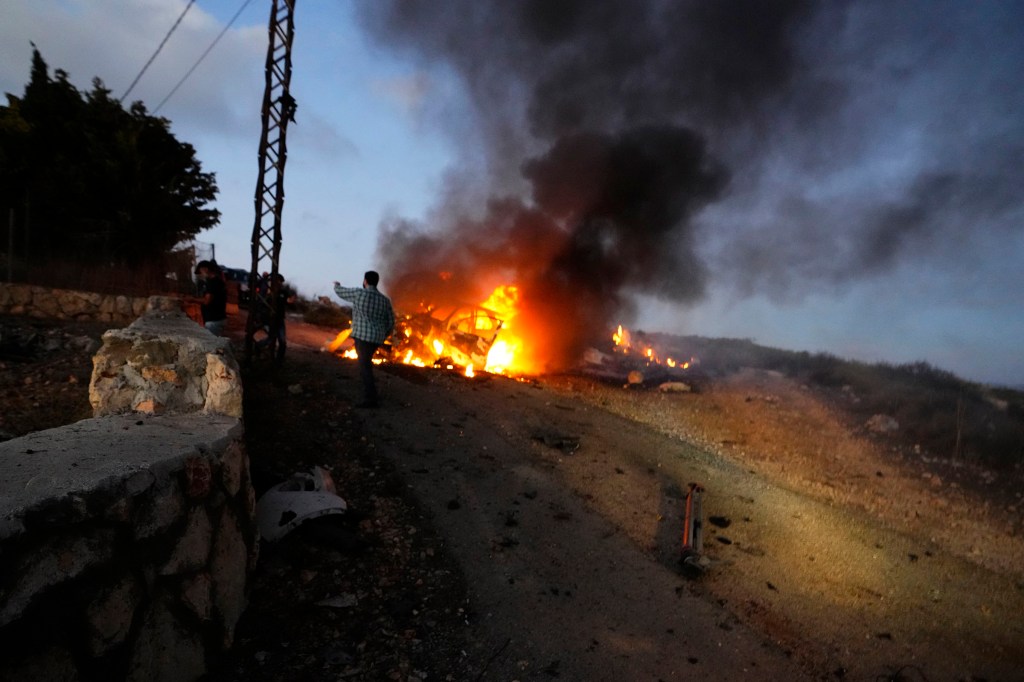Reports released today by Amnesty International, Human Rights Watch, Reuters, and Agence France-Presse (AFP) into the October 13 strike on journalists in southern Lebanon found that the attack, which killed Reuters journalist Issam Abdallah and injured six others, was likely a deliberate assault by the Israel Defense Forces on civilians, which would constitute a war crime.
All seven journalists were wearing helmets and flak jackets marked “press” and were close to a car with “TV” written across its hood.
The findings echo some of those in CPJ’s May 2023 report, which showed a pattern of lethal force by the Israel Defense Forces that left 20 journalists dead over the last 22 years. No one was ever held accountable. CPJ’s report found that the majority of the journalists killed were clearly identified as members of the media or were inside vehicles with press insignia at the time of their deaths.
🗯️ CPJ has repeatedly underscored that journalists are civilians under international law, and they must be respected and protected by all warring parties. Deliberately targeting journalists or media infrastructure constitutes a war crime.
⚠️ In the first two months of the Israel-Gaza war, CPJ has documented the deaths of at least 63 journalists and media workers. This continues to be the deadliest period for journalists covering conflict since CPJ began documenting fatalities in 1992.
Separately this week, a spate of violent abductions and attacks on journalists in Mexico continues a dangerous trend for media workers in the country. In only 10 days, eight Mexican journalists were abducted or shot at in four separate incidents.
Mexico is the most dangerous country in the Western Hemisphere for journalists, and in particular for journalists who, like those aforementioned, report on local crime, security, or politics, as these beats expose them to attacks by gangs. CPJ documented cases in Guerrero, one of Mexico’s most violent states due to turf wars between criminal groups, and the drug cartel-dominated neighboring state of Michoacán.
➡️ 2022 broke records for the number of journalists killed in Mexico, with 13 journalists killed. CPJ’s reporting consistently finds that impunity in journalists’ murders is entrenched in Mexico.
➡️ High levels of violence against journalists in the country can be attributed in part to the failure of state and federal authorities to make the environment safer for reporters, take crimes against the press seriously, or even respect press freedom at the state level.
Global press freedom updates
- CPJ welcomes conviction of death squad driver in murder of Gambian editor Deyda Hydara
- In Mali, one journalist killed, one injured, two kidnapped by unidentified gunmen
- Ethiopian authorities detain Ethio News chief editor Belay Manaye without charge
- Azerbaijani journalist Rufat Muradli sentenced to 30 days in jail; journalist Nargiz Absalamova detained for three months amid crackdown on Abzas Media
- CPJ alarmed by disappearance of Yemeni journalist Naseh Shaker
- Russia extends detention of RFE/RL journalist Alsu Kurmasheva by two months
- Hong Kong journalist Minnie Chan missing after reporting trip to Beijing
- Iranian journalist Mohammad Mir-Ghasemzadeh arrested as authorities ramp up legal pressure on media
Spotlight
Today, CPJ welcomed a new vice chair of the board and four prominent newsroom leaders to our board of directors:
- New vice chair, Lydia Polgreen, opinion columnist for The New York Times
- Roula Khalaf, editor of the Financial Times
- Alan Murray, chief executive officer of Fortune Media
- Maria Ressa, co-founder of Rappler and 2021 Nobel Peace Prize winner
- Jacqueline Simmons, editorial lead of Europe, Middle East, and Africa at Bloomberg
CPJ Chair Jacob Weisberg celebrated the new members of the board, saying, “They represent a tremendous range of knowledge and experience, and share a fundamental commitment to press freedom and safety around the world.”
CPJ’s board of directors is composed of journalists, media executives, and leaders from related professions in the United States and around the world.
- Over 60 journalists have been killed in the Israel-Gaza war. My friend was one. — Lama Al-Arian, The New York Times
- Behind the veil of popularity: Repression and regression of human rights in El Salvador — Amnesty International
- Actually, people don’t hate the media as much as you think — Tom Rosenstiel and Mariana Meza Hernandez, The Washington Post
- A light that cannot be extinguished: Exiled journalism and transnational repression — Jessica White, Grady Vaughan, and Yana Gorokhovskaia, Freedom House
- The landscape is darkening: A review of freedom of expression in South Africa (2018–2023) — Alan Finlay, Campaign for Free Expression
